Two Jailbirds
In memoriam Ernst Zündel
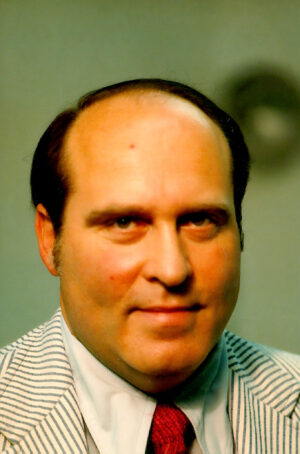
In 2010, a little over a year after I had been released from prison, and just a few months after Ernst Zündel had been released as well, Castle Hill Publishers ran out of the German edition of Robert Lenski’s book The Holocaust on Trial, which is a summary of the Second Zündel Trial. The question arose as to whether or not a second German edition was to be prepared. Ernst’s wife Ingrid agreed to a new edition published by Castle Hill Publishers, and so I sat down to bring that project to fruition. Eventually the question came up as to whether or not the new edition should have a new foreword. We decided that it should, and all fingers were pointing at me. I wasn’t very comfortable with the idea, because in 2010 I was initially still in Europe, living in England but visiting Germany on occasions. I didn’t want to get into the crosshairs of the German authorities again by suggesting to them that I am involved in publishing prohibited dissident literature. So I hesitated, also because being associated with Ernst Zündel seemed like a sure-shot recipe to get even more ostracized than I already was. But I decided to write that foreword anyway, because I didn’t want to contribute to Ernst Zündel’s ostracizing by shunning him. I insisted on declaring my solidarity with a comrade in suffering, knowing full well how much it hurts when, as in my own past, former friends had distanced themselves from me. I wasn’t going to do that to Ernst. Any kind of dissociation from Ernst was utterly out of the question.
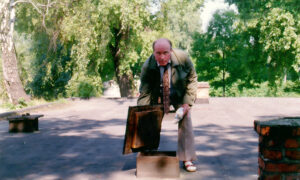
The danger existed that, for this act of solidarity, I would become once more the focus of attacks and maybe even prosecution. But whatever happened, I was willing to risk it. It turned out that I got lucky, as nothing ever happened, but back in 2010, I was still shell-shocked after my 45 months of forced vacation behind bars, so I was nervous.
Just yesterday, on August 7, I found out about Ernst’s passing. Sharing my intimate memories of Ernst seems like a good way of mourning, and of showing my friendship and respect for this true hero. Hence here in English, slightly updated and revised, is what I wrote in 2010 as the foreword to the German edition of Lenski’s The Holocaust on Trial, titled Der Holocaust vor Gericht.
First off, the uninitiated reader may ask why I, of all persons, should have anything relevant to say about Ernst in the first place? Well, the brief answer to that is that we both basically sat in the same boat. What exactly that means I will henceforth explain.
In 1989, I bought a book by a Swiss political scientist writing about Germany’s attempts at coming to terms with her past, and the many ways this process is being hijacked and misused by various political groups. In one chapter, the book mentions an expert report prepared by U.S. expert in execution technologies Fred Leuchter. He had prepared this document in 1988 for Ernst Zündel’s defense during the latter’s second trial in Canada for “spreading false news” on the Holocaust. Reading this chapter on Leuchter’s work was an epiphany for me and led me onto the path of becoming a revisionist myself. I have described the details of that journey elsewhere, which the interested reader may consult.

The only thing of relevance in the present context is that this book made me order a copy of the Leuchter Report (the order address had been given in that book). Despite several flaws which I discovered while carefully studying Leuchter’s report, it still made such a strong impression that it threw me into quite some confusion, because so far I had firmly believed that the orthodox Holocaust narrative was unshakably true. I started pondering over several of Leuchter’s claims and statements, but that didn’t yield any concrete results. I realized soon that only some serious research could alleviate my nagging doubts, and could answer the many questions I had.
Several months after having first read the Leuchter Report, I decided to find out whether any other chemists, physicists or engineers were racking their brains about that topic as well. But I knew no one I could ask. In that context, it occurred to me that maybe Ernst Zündel might know, whose address I could find out easily. Hence, I wrote a letter to Ernst in late 1989. That step wasn’t easy for me back then, because it didn’t feel right to get in touch with someone who was labelled a “Nazi” by the mainstream media. Today I can only smile about the Pavlovian reflex I showed back then, because today the general public uses the same invective against me.
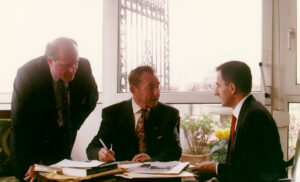
In my letter, I asked Ernst Zündel to please send me contact information of individuals who were doing research into the chemical issues involved. Since this topic was so important and interesting, I honestly assumed that many scientists must already be working on that.
I was very much disappointed when I heard back from Ernst telling me that I was the very first chemist who had gotten in touch with him about this issue and who offered his help. Well, I had not exactly offered him my help but had merely asked for the addresses of experts whom I wanted to assist. Back then I had just graduated from University and was doing my compulsory service in the German air force, which is why, at that time, I was unable to get involved in any serious research myself. I therefore shelved the entire project.
That situation changed in late 1990, however, when I started preparing my PhD thesis in the field of theoretical crystallography at the Max Planck Institute for Solid State Research in Stuttgart, Germany. That work did not open up any opportunity to contribute in any way to doing research on “Auschwitz.” But back then I hadn’t moved to Stuttgart merely because of my post-graduate studies, but also because I had fallen in love with a girl who lived in that city…
Fate had it that this young love fell apart rather quickly after I had moved to Stuttgart. My broken heart couldn’t stand sitting all alone in my little fraternity bedroom, so I was looking for some serious distraction from my misery… and I found it in the form of forensic research on red-hot historical issues.
Don’t tell me women don’t rule the world!

I met Ernst Zündel for the first time toward late 1991 when he was present in Germany on the occasion of a trial that had been staged against him in Germany. I remember vividly how Ernst and I were walking along some trails through the fields surrounding the town of Leinfelden south of Stuttgart, talking about all kinds of things. We got along pretty well right away. We liked each other. One of the issues we discussed was my own expert report on the gas chambers of Auschwitz. Back then I was in the final stages of editing it, and Ernst was interested in purchasing the copyright to it. I had some qualms about placing my expert report in such a controversial context, however, so I rejected his offer. That was rather silly, considering the controversial context within which my own expert report was eventually published. But that’s a different story.

The next time we met was in 2000, when I was a refugee in the United States. My intense and varied involvement in revisionism had set me on a head-on collision course with the German powers that be. They were coming after me like the devil goes after the poor soul, as we Germans say. Hence, I left Europe in late 1999 for the U.S., where my good friend Dr. Robert Countess and his lovely wife Elda gave me shelter and treated me like a son.
One foggy day in early 2000, Dr. Bob drove with me to Tennessee where the Zündels had settled, waiting for Ernst’s green card application to pass – which it never would, but that’s yet another story. During the next few years I met Ernst on few occasions, when we casually talked about personal and revisionist matters, but other than that, we had no contact with each other.
That changed radically in the fall of 2007 when we both were locked up on the same floor in the same wing of the Mannheim prison. At that point in time, we both had just been through the traumatic experience of having been deported from the United States and having gone through a show trial in front of a German kangaroo court. (To be more precise: Ernst had to suffer through two such sham proceedings: first one “in camera”– that is, behind closed doors – in Canada, then one in Germany.)
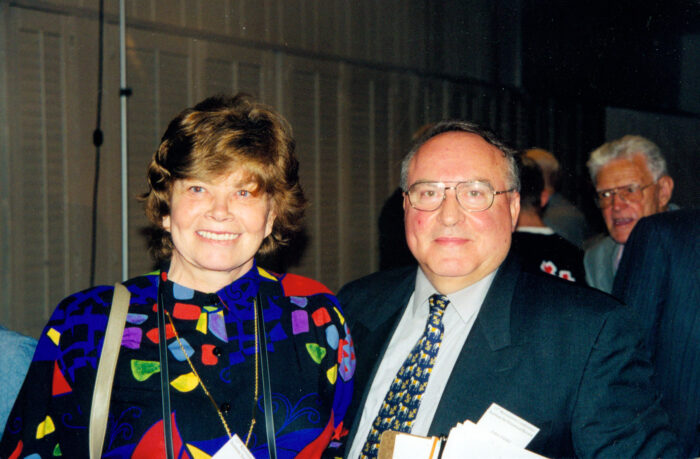
I remember that memorable afternoon as if it were yesterday. As usual, I was doing my workout in my prison cell with my self-made weights (ten milk boxes of one liter each put into a tank top that’s knotted shut at the bottom). One of the guards had told me that Ernst was about to be transferred from the investigative custody wing to the prison wing on that day. I myself had been transferred to the Mannheim prison only a few weeks earlier. Even though my cell door was supposed to be locked at that time, the guards were so nice as to leave my door open (preferential treatment for decent behavior), which enabled me to linger in the hallway – although I hardly ever did that, because the only thing that one could encounter there were rather unpleasant things: dirt, noise, and (real) criminals…

I was just doing my triceps exercise when the door opened and Ernst stood in my cell with a broad smile on his face. What a reunion! After so many months of deprivations and humiliations finally someone who could be fully trusted, who did fully understand, who had walked through the same hell as I had – and even worse! During the subsequent two to three months, we were able to talk many hours every day during our “time out” – open cells between 5:30 and 9:30 pm. Either we sat together in (usually) his cell, or we walked up and down the hallway, talking about everything our hearts desired.

Later I was moved to a different wing of that prison, so that our time together was reduced to occasional encounters during our courtyard time (an hour a day). After so many weeks of talking, however, we had run out of topics to cover, so the loss wasn’t all that dramatic.
Strictly speaking, we should never have met in prison. Both our files were marked with red highlighters saying “Separation of Accomplices!” Keeping accomplices in a crime physically separate is standard procedure during ongoing court proceedings. This way, the perpetrators (or suspects) cannot adjust their stories, hence obfuscate justice. But our files also stated clearly that nothing indicates that we had ever done anything together, let alone committed a crime together. Consequently, we had never even been indicted together for anything. Then why this “separation of accomplices” that was even upheld after our verdicts had come into effect?
Well, the German authorities wanted to prevent under any circumstances that we encourage and reinforce each other in our views. Note well: Germany doesn’t have any political prisoners, no one is put into prison for their views, and everyone can freely form and express their opinion. Unless, of course…
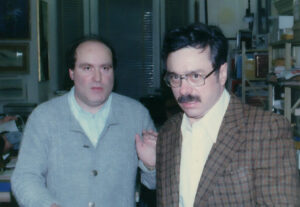
It goes without saying that the many drug dealers sitting in prison are never in any danger of encouraging and reinforcing one other in their views, which is why no efforts are ever made to separate them. As a result, there is no other place in Germany where it is as easy to get drugs as it is in a German prison. Almost every other inmate can help you out with that …
When Germany’s biggest tabloid Bild found out in January 2008 that Ernst and I were sitting in the same prison and were exchanging our peaceful yet iconoclastic thoughts, these vanguards of free speech screamed bloody murder. The local Mannheim edition of Bild published a large article about us calling it a scandal that those evil scalawags could talk together in prison!

I took that press campaign as an opportunity to apply for a transfer to a different prison for reasons of “public interest.” That request of mine was swiftly granted, so in late February 2008 I was transferred to the prison in Rottenburg on Neckar. My own motivation was not any respect for the public interest or worries about my mental health due to exposure to Ernst’s thoughts, but my own family: I wanted to be as geographically close as possible to the town where my children from my first marriage lived at that time. This way it was much easier for them to visit me. Since between Ernst and me all had been said that needed to be said, the Bild article was a blessing in disguise.

The very last time I saw Ernst was a few days before I left Germany for good. In July 2011, I had finally received an immigrant visa to the U.S. in order to be reunited with my current family and our daughter. Before leaving Europe, however, I drove up to his parental home in the Black Forest and stayed a night. I told him about the many revisionist things I had covertly gotten involved in again right after having been released from prison, and about all the projects I was planning to do, once safely anchored in the U.S. He was pleased. The next morning, we said farewell, sensing that we might never meet again.

During the few months we spent together in prison, I was able to get to know the real, the elementary Ernst. Maybe I am wrong, but I think that there are few people, outside of his immediate family, who knew Ernst as well as I did. If you have been standing together under the prison’s community showers for weeks on end, you know each other.
So who was Ernst Zündel?
Among the inmates he was very popular, because he was polite and helpful to them all. In Germany, 70% to 80% of all prison inmates are foreigners – Turks, Kurds, Poles, Russians, Arabs, black Africans. They all could and would come to Ernst. His cell was like a train station, with inmates constantly coming and going. They poured out their hearts, got good advice from him, and could always expect to get help. That was Ernst, and he has always been that way: polite, gentle, peaceful, warm-hearted, and helpful. He was a good speaker, but even a better listener. Even in the worst of circumstances he was always good for a joke, always able to raise the morale of others. He was especially liked among the prison staff for his amicability, courtesy and for his excellent manners.
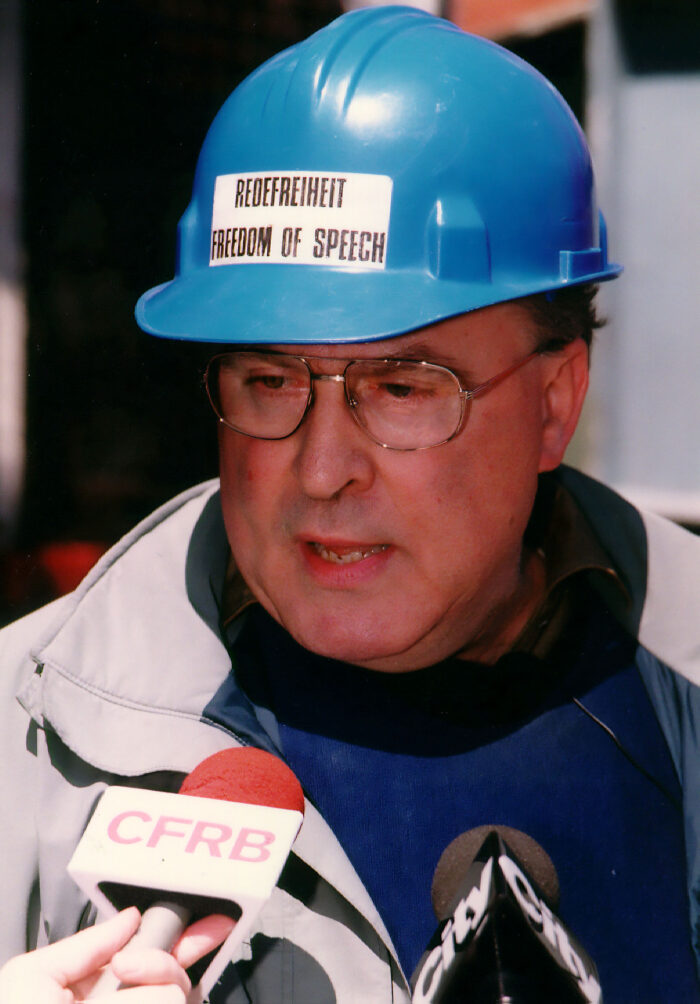 Contrast this with what we have heard for decades about Ernst – and are hearing again now – from the mass media who have maligned him, from the judiciary who took his freedom, and from the politicians who have ostracized him. If you were to rely on them as sources of “information,” you’d get the exact opposite impression. For decades, his enemies have called him a hater and evil demagogue. This hateful propaganda has paved the way for decades of persecution and finally for his 7-year-lasting imprisonment. The caricature which the mainstream has painted of Ernst couldn’t be more grotesquely wrong.
Contrast this with what we have heard for decades about Ernst – and are hearing again now – from the mass media who have maligned him, from the judiciary who took his freedom, and from the politicians who have ostracized him. If you were to rely on them as sources of “information,” you’d get the exact opposite impression. For decades, his enemies have called him a hater and evil demagogue. This hateful propaganda has paved the way for decades of persecution and finally for his 7-year-lasting imprisonment. The caricature which the mainstream has painted of Ernst couldn’t be more grotesquely wrong.
The truth is that in this entire Zündel affair, it wasn’t Ernst who was the evil demagogue, but rather the parties who were persecuting and prosecuting him, and who incited the entire world to hate him and his peers. So the shoe has always been on the other foot!
Wherever and whenever you encounter the usual slanders and libels hurled against Ernst, I ask you to keep the following wisdom in mind which was coined by my fatherly friend, the late Dr. Robert Countess, may he rest in peace:
Truth is Hate in the Eyes of Those
Who Hate the Truth,
and That is the Truth!
Germar Rudolf, Red Lion, August 8, 2017

Bibliographic information about this document: n/a
Other contributors to this document: n/a
Editor’s comments: n/a
